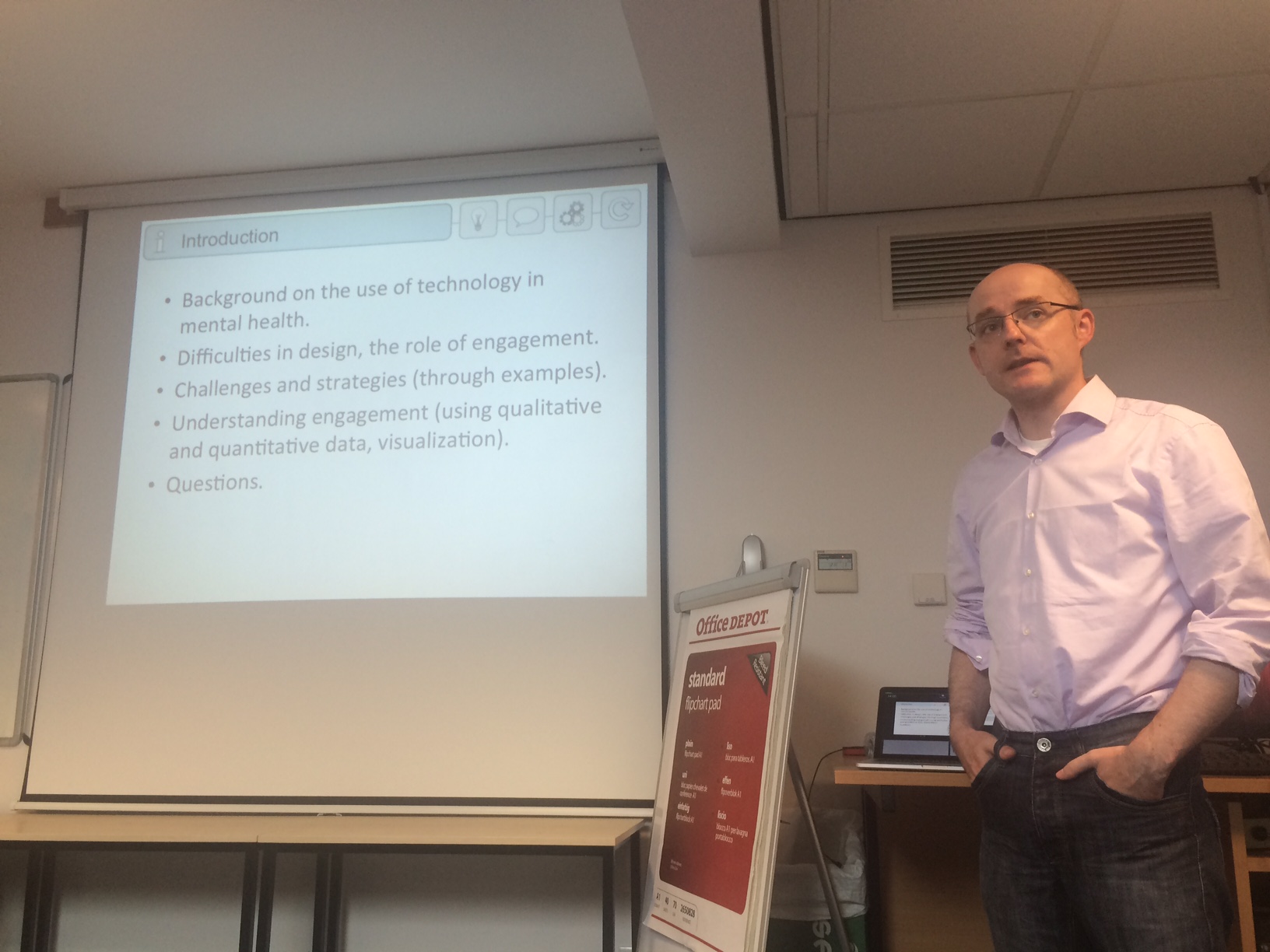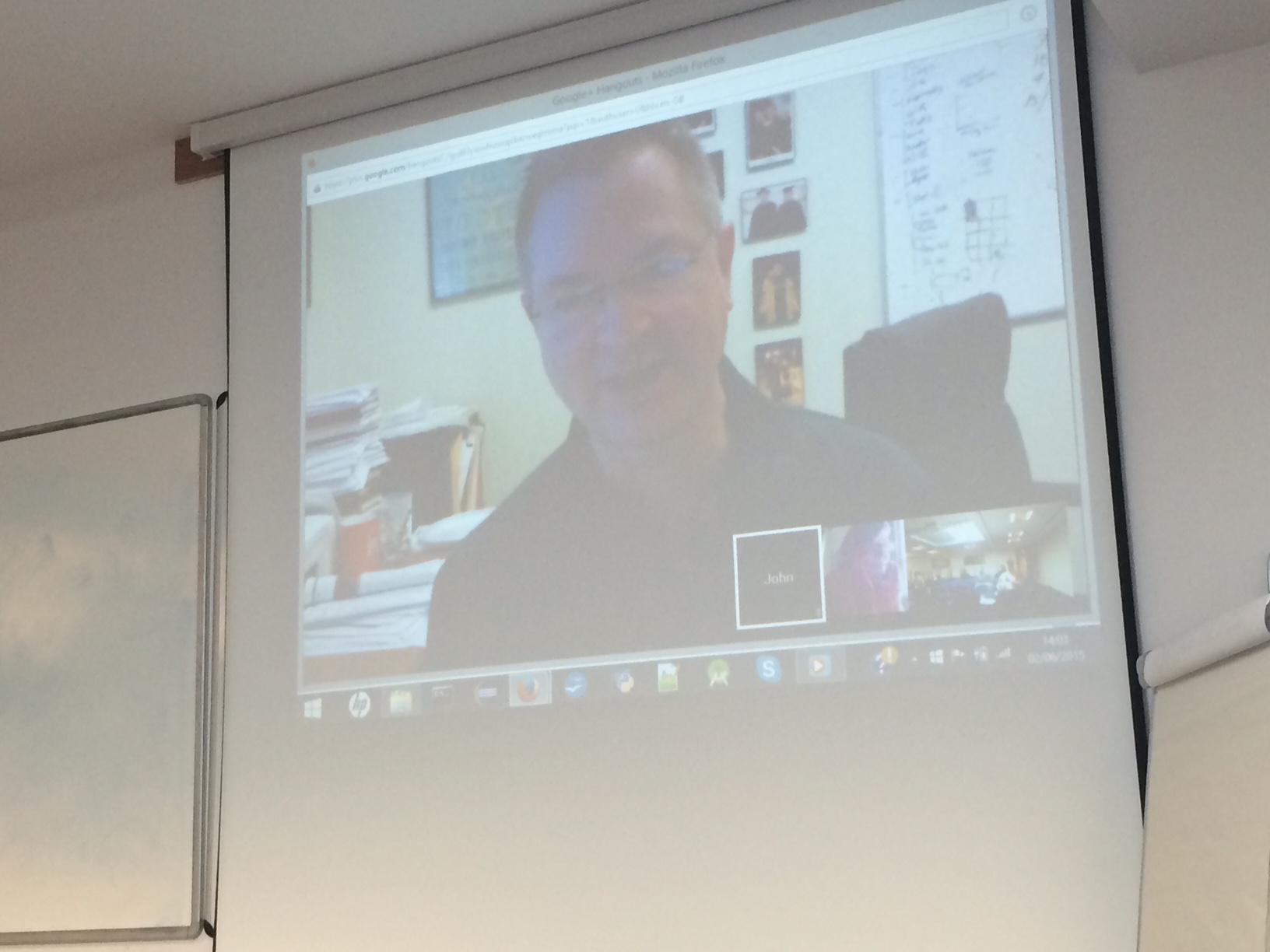<!–Speaker: Andruid Kerne, Texas A&M, USA
Date/Time: 2-3pm June 26, 2015
Location: CS1.33a, University of St Andrews–>
 Abstract:
Abstract:
Centuries ago, the technology of movable type vaulted human consciousness and expression from oral performance—improvisational— to writing, fixed by letters and words. The Interface Ecology Lab investigates new technologies that transform human expression. We engage the human body with the digital. We use cloud and web to maximize impact. We investigate how curation, exploration, and body-based interaction support expression and ideation. MORE
News
<!–Speaker: Gavin Doherty, Trinity College Dublin
Date/Time: 2-3pm June 16, 2015
Location: CS1.33a, University of St Andrews–>
Abstract:
Mental illness is one of the greatest social and economic challenges facing our society.
The talk will consider at some of the different ways in which technology (and HCI research) can help, with a particular focus on the problem of engagement. Taking examples from a series of projects to develop novel technologies for use in the mental health space, we will see some of the unique issues and challenges which come from working in this domain, and the steps which can be taken to address them. The SilverCloud platform, designed to deliver range of engaging and effective clinician-supported mental health interventions, will be used as a specific example to discuss the topics of evaluation and dissemination. Development of a suite of programmes and a number of partnerships based on the platform have enabled the delivery of supported online interventions to tens of thousands of patients in a range of public and private healthcare services worldwide.
Bio:
Dr. Gavin Doherty is an Associate Professor in the School of Computer Science and Statistics at Trinity College Dublin, and co-founder of SilverCloud Health. He completed his doctorate at the University of York, before undertaking postdoctoral work at CNR in Pisa and the Rutherford Appleton Laboratory in the UK before moving to TCD. He is interested in design for specific application areas, and has led a number of interdisciplinary projects in a number of different domains. A major focus of his work over the last decade has been on the design of technologies for mental health. The aim has been to develop systems which can increase access to, increase engagement with, and assist in improving the outcomes of mental health interventions.
This seminar is part of our ongoing series from researchers in HCI. See here for our current schedule.
<!–Speaker: John Stasko, Georgia Institute of Technology
Date/Time: 2-3pm June 2, 2015
Location: CS1.33a, University of St Andrews–>
Abstract:
As the field of information visualization matures, researchers are able to reflect on, and perhaps even question, some long-accepted notions from the area. In this talk, I focus on three such notions:
* Representing network data through force-directed node-link diagrams
* Focusing on visual representation first and foremost
* Evaluating visualizations through user studies and experiments
Although these ideas clearly have value as evidenced by their acceptance and longevity, I have begun to question the wisdom of each. In this talk I’ll explain my concerns about these notions and I’ll suggest a new, alternative approach to each as well. To support these arguments, I will describe a number of research projects from my lab that illustrate and exemplify the new approach.
Bio:
John received the B.S. degree in Mathematics at Bucknell University in Lewisburg, Pennsylvania (1983) and Sc.M. and Ph.D. degrees in Computer Science at Brown University in Providence, Rhode Island (1985 and 1989). He joined the faculty at Georgia Tech in 1989, and he is presently a Professor in the School of Interactive Computing in the College of Computing. His primary research area is human-computer interaction, with a focus on information visualization and visual analytics. John is a senior member of the ACM and IEEE. He was named an ACM Distinguished Scientist in 2011 and an IEEE Fellow in 2014. He also received the 2012 IEEE VGTC Visualization Technical Achievement Award. In 2013 John served as General Chair of the IEEE VIS conferences in Atlanta, and he was named an Honorary Professor in the School of Computer Science at the University of St. Andrews in Scotland.
This seminar is part of our ongoing series from researchers in HCI. See here for our current schedule.



